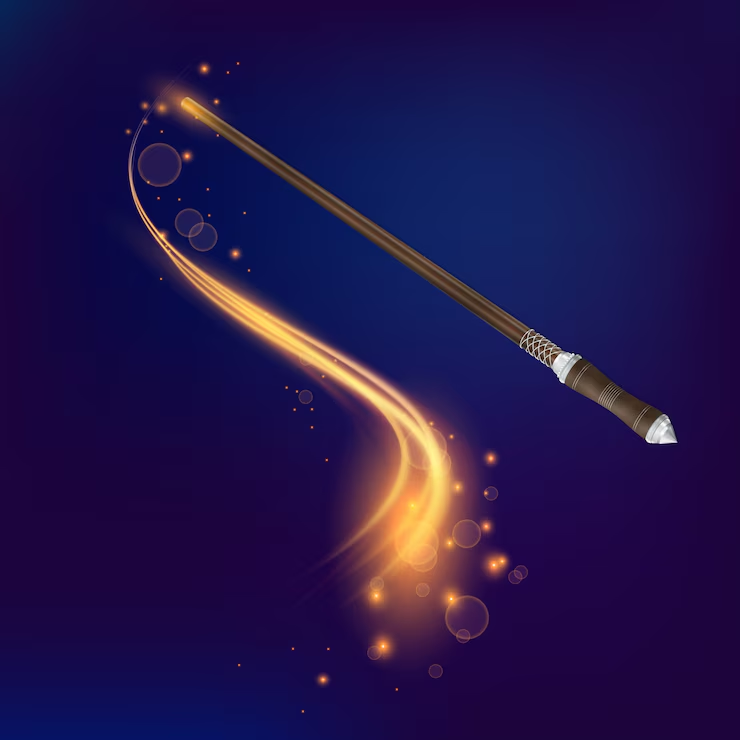
There is lots of irony found in the movie "The Cursed Child" (Freepik).
The Harry Potter franchise dominated the social scene during the 90s and 2000s, each book and movie captivating millions across the globe.
The series still has great influence when it comes to more current generations of readers, like Gen Z and Gen Alpha, as many kids continue to read about the boy who lived and his great adventures.
From dark academia tones to startling hues of magic and danger, most readers have found Harry Potter to be a cornerstone of their lust for literature. However, in recent decades, the franchise has fallen from its shiny pedestal due to social controversy.
J.K. Rowling, the author of the series, was praised for her absolute genius when it came to plotting and writing each book in the series, drawing fans along year by year as she published book after book after book. Rowling, however, has found public hatred and criticism in recent years, especially during the 2010s, when the famed author made public statements against the LGBTQ+ community.
Her more prominent transphobia has changed public opinion, especially when it comes to Gen Z, a generation that prides itself on a more accepting culture of people of color and people associated with the queer community.
And yet, Rowling and her books still can’t seem to shake off the LGBTQ+ flair in pop culture, an element of plot design dominating the entertainment industry currently.
“The Cursed Child,” Rowling’s prized sequel to the Harry Potter series, follows the life of Albus Severus Potter, youngest son of Harry Potter and Ginny Weasley. Albus befriends Scorpius Malfoy, infamous son of Draco Malfoy and long time rival of the Golden Trio, Harry, Ron Weasley, and Hermione Granger.
The two go off on great adventures during their time at Hogwarts School of Witchcraft and Wizardry, experimenting with time travel and the dark forces. Both loved and hated characters, like Professor Severus Snape and Professor Minerva McGonagall, as well as Voldemort and Professor Umbridge, make a return in the novel in this twisted time-travel-scheme, allowing readers to revel in the rich history of Rowling’s wizarding world.
In 2018, “The Cursed Child” made its debut on Broadway, as the novel was written in script format, and the world and story of Harry Potter dazzled audiences once more.
Currently, “The Cursed Child” is touring the U.S. and recently came to the Pantages Theatre in Los Angeles in March. Performances of the production continue at the Pantages until late June. I was able to view a performance of the production, having never read the book before, and was definitely delighted with the theatrical and technical magic of the entire production.
However, by the end of the performance, I was captivated by the fascinating dynamics between Scorpius and Albus, two friends turned possible lovers.
The chemistry between the actors was overly apparent, beautifully staged, and made a statement, especially considering Rowling’s current standing with the public eye. After the show, when I was walking out on the streets of L.A., I was able to overhear some commentary from other audience members. They claimed the show was edited from the original Broadway version, and some lines were changed, cutting out LGBTQ+ innuendo.
Yet, I was still able to catch up on a relationship brewing between the two characters, having never experienced the original Broadway production or the actual book.
The possible queer relations between Albus and Scorpius is a beautiful addition to the story, tying up the plot with a neat, yet tragic, ribbon. It is a gorgeous irony, a bond between a struggling, homophobic author and a magical gay relationship, creating a paradox for all to see and speculate on.
I truly appreciate the bond between Scorpius and Albus, and am happy to see more representation of diverse sexualities. I just love to find the irony found in a series rooted deep in the pop culture of the literary world.
Hats off to a naive Rowling, hats off to Broadway, and hats off to the touring cast of “The Cursed Child.”